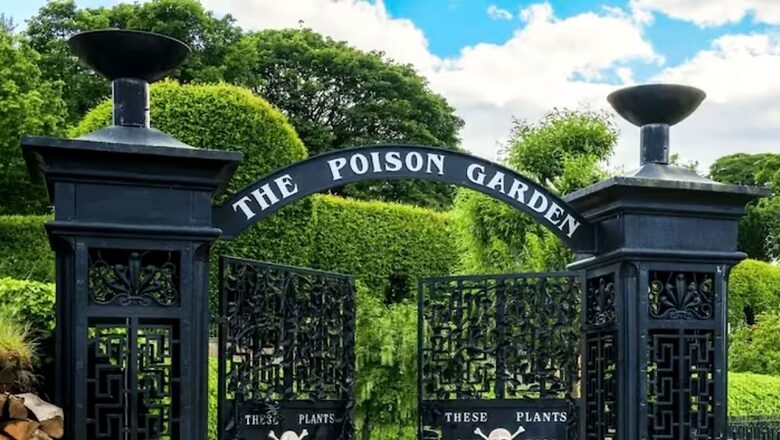
views
One of the most venomous plants in the world, known as the gympie-gympie or Dendrocnide moroides, has been brought to Alnwick Garden’s Poison Garden in Northumberland, England. This plant, which causes excruciating pain akin to being electrocuted and set on fire simultaneously, will be kept securely locked in a glass case. It has been assigned its caretaker because even a slight touch can result in intense agony. Typically found in the rainforests of Australia and Indonesia, this stinging plant has now found a home in the garden.
John Knox, the head tour guide at the Poison Garden, said, “The plant is covered in tiny hairs, so even a slight brush against it can lead to these hairs penetrating the skin, breaking off, and injecting venom. The sensation has been likened to experiencing both electric shocks and being engulfed in flames simultaneously.” He added that a mere touch of the plant can cause agonising pain that can persist for weeks or even months.
At the North East attraction, the plant has been entrusted to its keeper, who is responsible for its care, including watching over it, feeding it, and ensuring it is watered adequately. Knox stated the importance of keeping the plant locked behind glass, as even the slightest dispersal of its hairs could trigger severe allergic reactions.
In 2020, Australian scientists discovered that the toxins produced by these plants closely resemble those found in spiders and scorpions. They found that the venom’s molecular structure forms knots, enabling it to ensnare and repeatedly target pain receptors in the victim’s body.
The Poison Garden, established in 2005 as part of a tourist attraction developed by the Duchess of Northumberland, boasts a collection of over 100 toxic, intoxicating, and narcotic plants. Visitors are required to undergo a safety briefing before entering, as inhaling toxic fumes in the garden has led some individuals to faint.
Indeed, despite their toxicity, some plants in the garden possess medicinal properties that are invaluable in treating otherwise untreatable illnesses. Take the yew tree, for example, known for its deadly poison called taxine, capable of causing death within 20 minutes. However, what is rarely known is that the yew tree also produces taxol, a powerful medicine that has proven to be extremely effective in treating breast cancer. This duality highlights the complex relationship between toxicity and medicinal benefits that many plants possess.


















Comments
0 comment